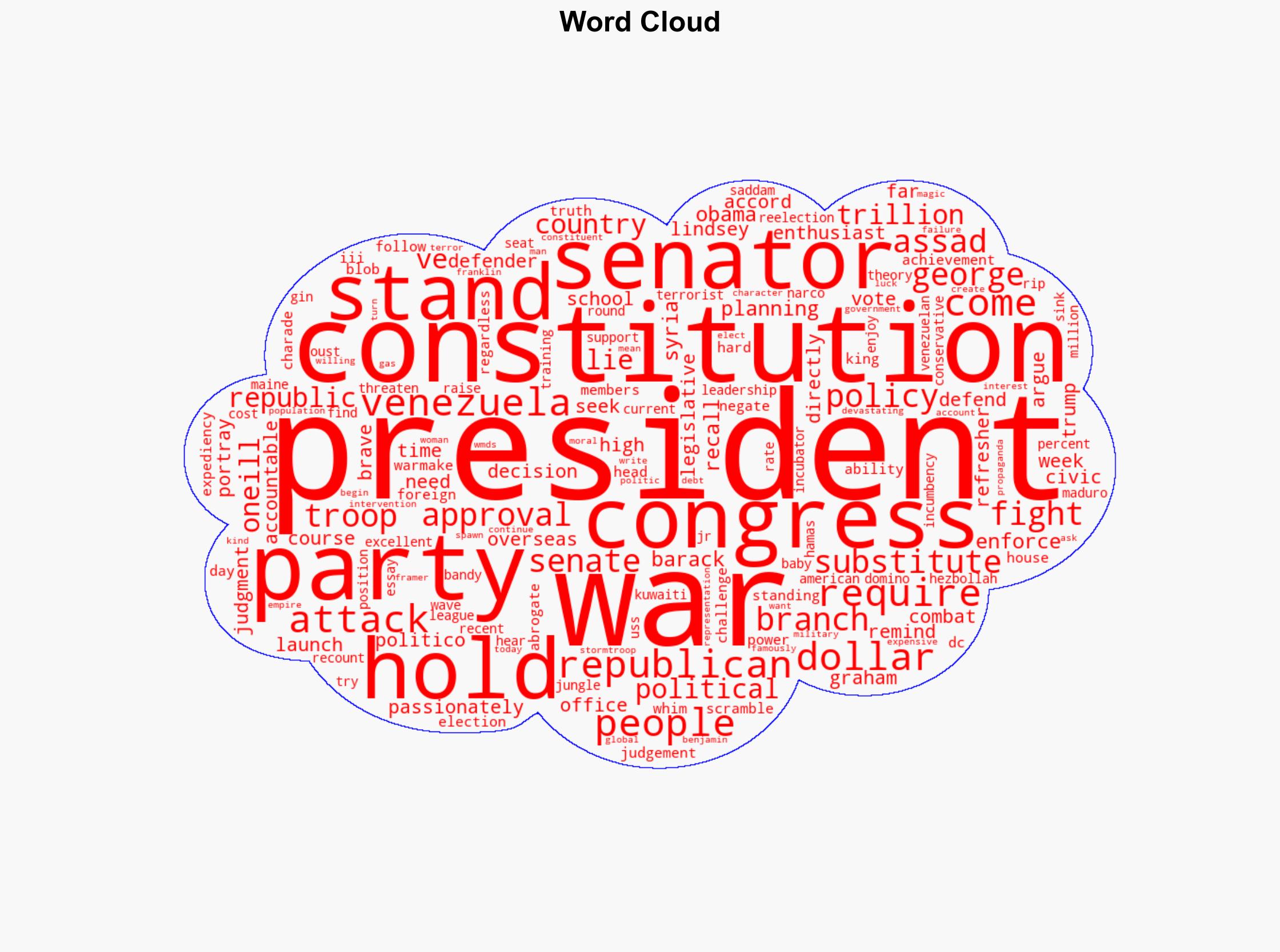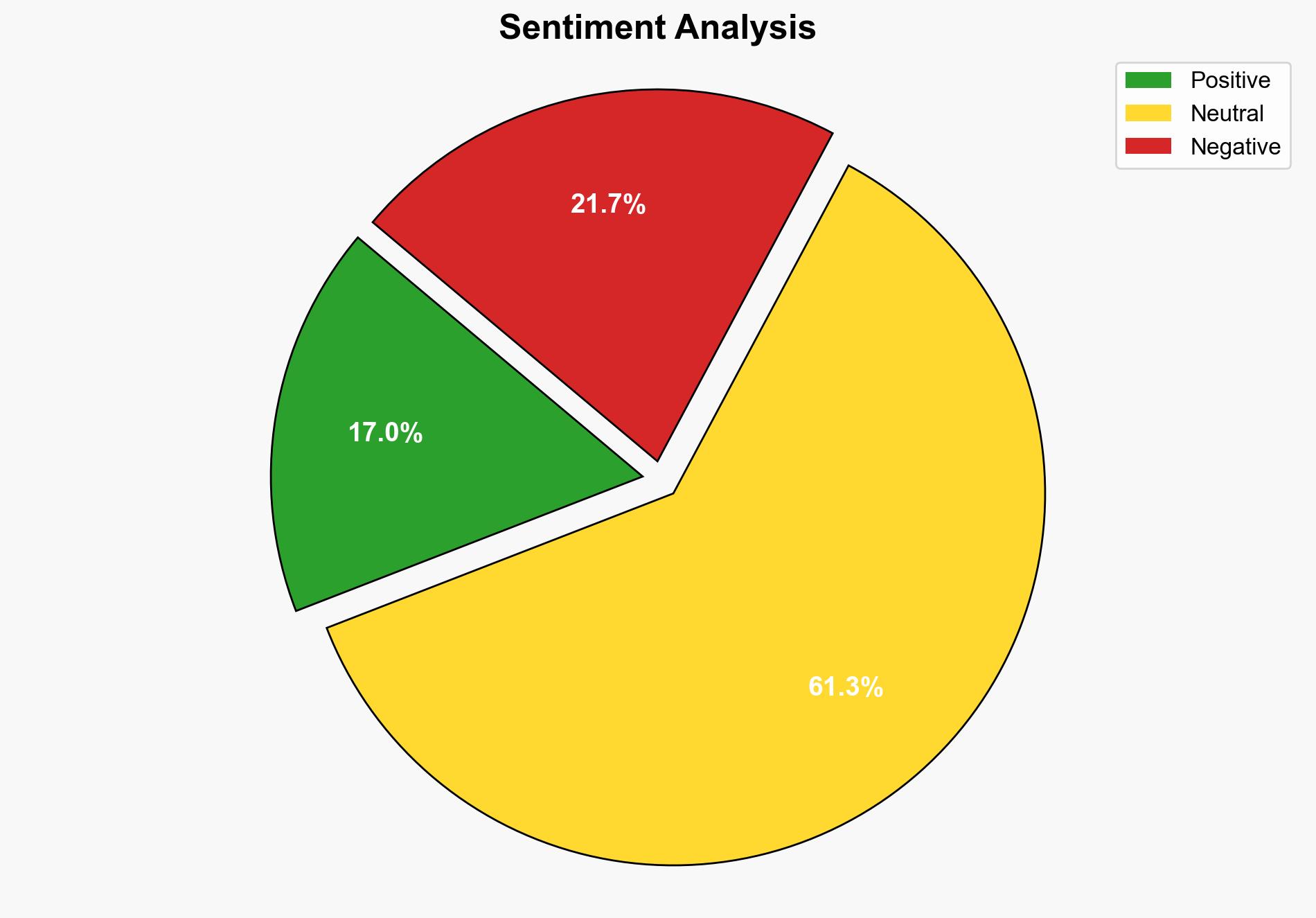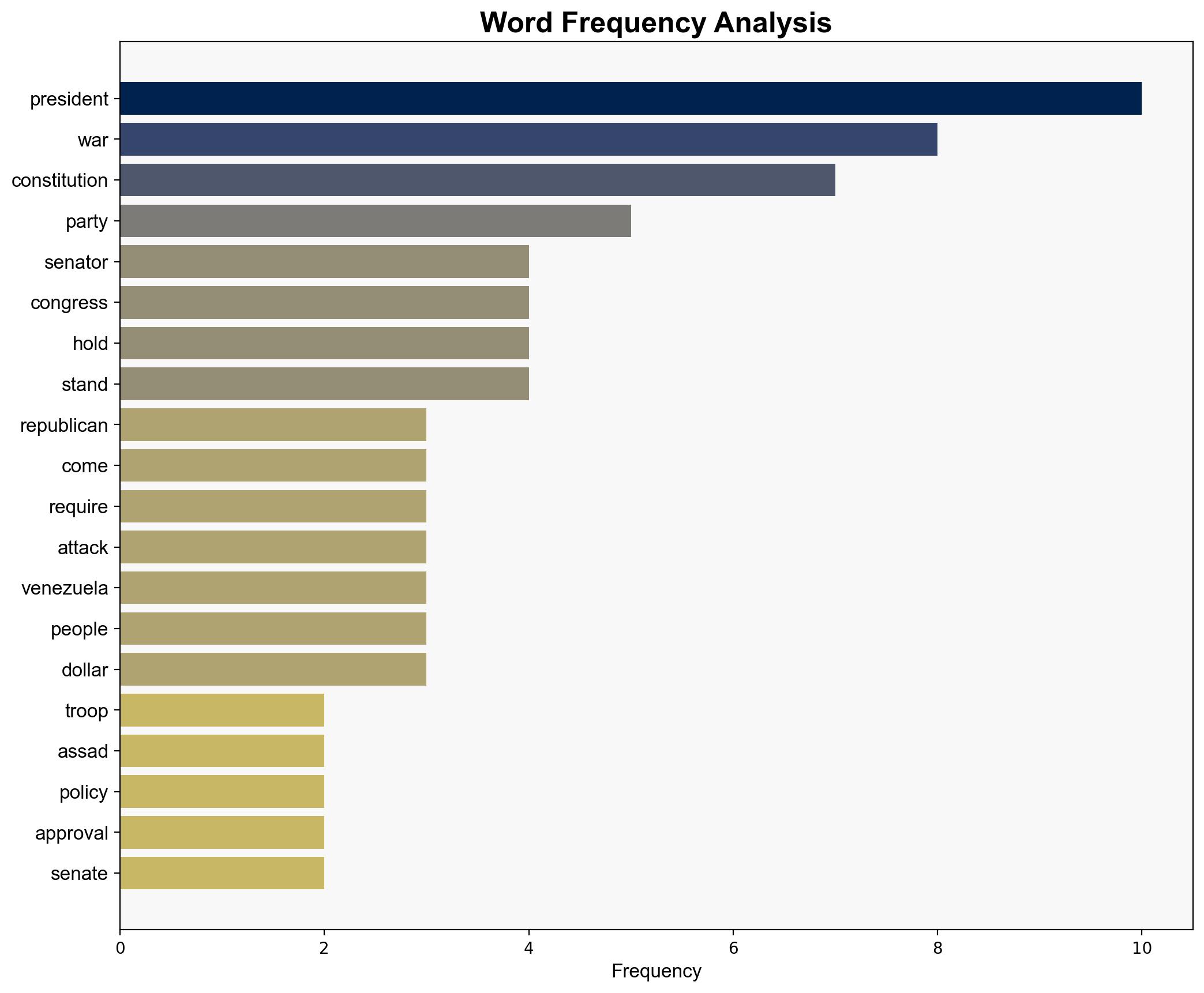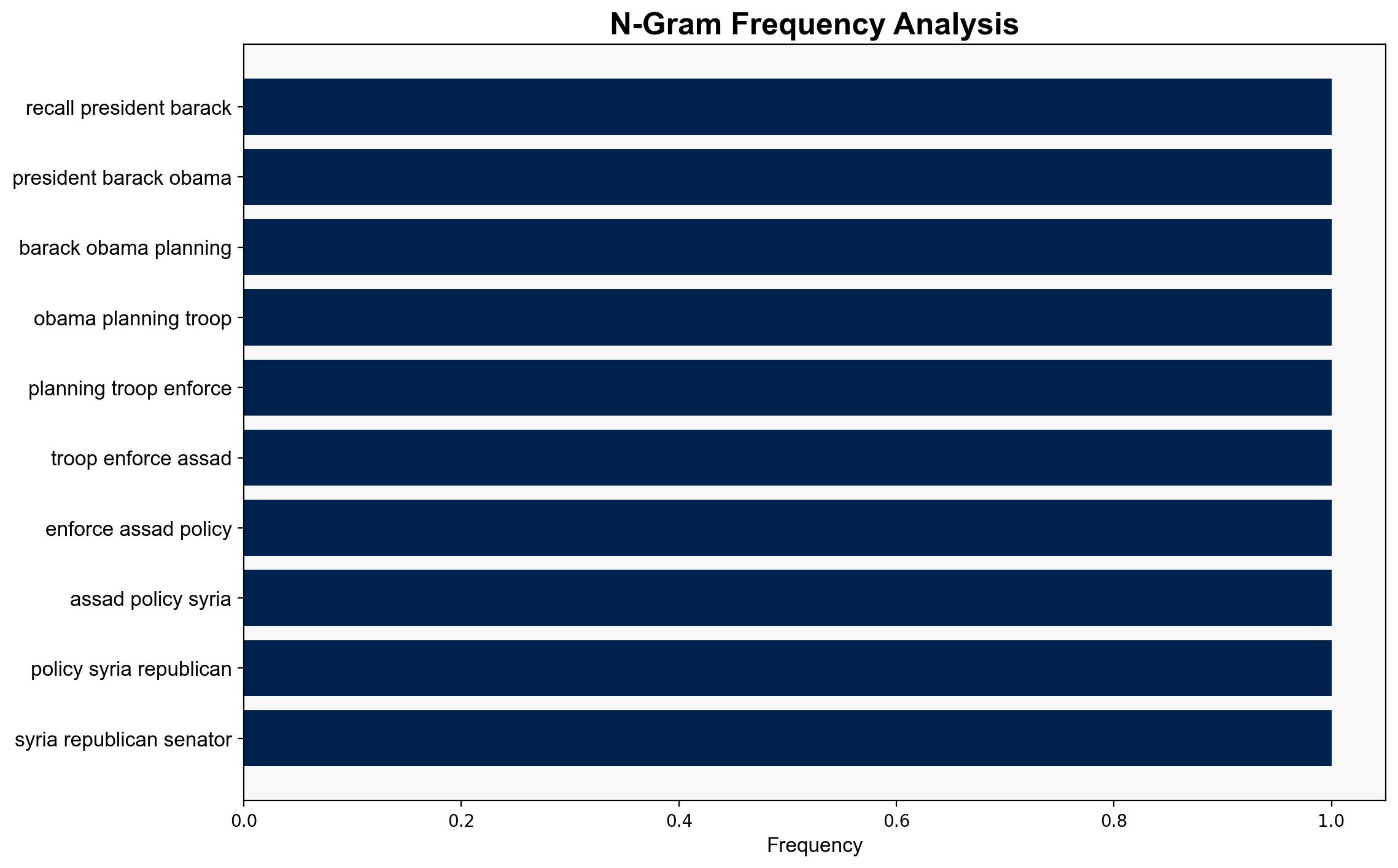Congressional Republicans Must Stand Up to the President on Venezuela – Antiwar.com
Published on: 2025-11-11
AI-powered OSINT brief from verified open sources. Automated NLP signal extraction with human verification. See our Methodology and Why WorldWideWatchers.
Intelligence Report: Congressional Republicans Must Stand Up to the President on Venezuela – Antiwar.com
1. BLUF (Bottom Line Up Front)
The most supported hypothesis is that Congressional Republicans are unlikely to challenge President Trump’s authority on military intervention in Venezuela due to political alignment and electoral considerations. Confidence Level: Moderate. Recommended action includes encouraging bipartisan dialogue and reinforcing constitutional checks and balances to prevent unilateral military action.
2. Competing Hypotheses
Hypothesis 1: Congressional Republicans will challenge President Trump on military intervention in Venezuela to uphold constitutional checks and balances.
Hypothesis 2: Congressional Republicans will not challenge President Trump due to political alignment and fear of electoral repercussions.
Hypothesis 2 is more likely due to historical precedence of party loyalty overshadowing constitutional concerns, as well as the potential political cost of opposing a sitting president from the same party.
3. Key Assumptions and Red Flags
Assumptions: It is assumed that Congressional Republicans prioritize party loyalty over constitutional adherence. It is also assumed that the political cost of opposing the president is a significant deterrent.
Red Flags: The narrative may be influenced by partisan bias, and the potential for misinformation regarding the situation in Venezuela should be considered. Deception indicators include the use of historical analogies that may not be directly applicable to the current context.
4. Implications and Strategic Risks
Failure to uphold constitutional checks could lead to unchecked executive power, setting a precedent for future military interventions without congressional approval. This could result in political instability, both domestically and internationally, and increase the risk of military escalation in Venezuela. Additionally, there is a risk of damaging U.S. credibility in advocating for democratic norms globally.
5. Recommendations and Outlook
- Encourage bipartisan efforts to reinforce the constitutional requirement for congressional approval of military action.
- Promote transparency and public debate on the implications of military intervention in Venezuela.
- Best-case scenario: Congress asserts its authority, preventing unilateral military action and fostering a diplomatic solution.
- Worst-case scenario: Unilateral military action leads to prolonged conflict, regional instability, and domestic political fallout.
- Most-likely scenario: Congressional Republicans remain aligned with the president, but increased public scrutiny leads to greater debate and potential legislative action.
6. Key Individuals and Entities
Lindsey Graham, George O’Neill Jr., President Trump, Republican Senators
7. Thematic Tags
Counter-Terrorism, Constitutional Law, U.S. Foreign Policy, Political Strategy
Structured Analytic Techniques Applied
- ACH 2.0: Reconstruct likely threat actor intentions via hypothesis testing and structured refutation.
- Indicators Development: Track radicalization signals and propaganda patterns to anticipate operational planning.
- Narrative Pattern Analysis: Analyze spread/adaptation of ideological narratives for recruitment/incitement signals.
Explore more:
Counter-Terrorism Briefs ·
Daily Summary ·
Methodology





